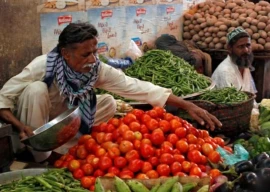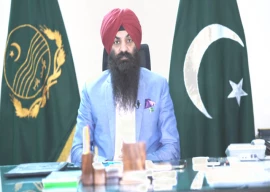
It is unfortunate that civil society organisations and the parliament have misperceptions about each other, Westminster Foundation of Democracy Programme Manager Ali Imran said at a consultative meeting on Friday.
The meeting aimed to discuss ideas and recommendations to build a cooperative and supportive relationship between civil society organisations and the parliament. Participants including lawmakers from the treasury benches in Punjab Assembly and civil society representatives from Lahore and Multan discussed opportunities and challenges pertaining to these linkages.
Imran said there was a need to improve linkages between civil society and the parliament. He said this would not improve parliamentary performance but also result in strengthening democracy.
He said the WFD hoped to set up a tripartite forum comprising civil society organisations, lawmakers from the provincial assembly and the assembly secretariat. He said the forum would help build institutional relationships and would benefit everyone.
MPA Ayesha Javed said there was great scope for improving parliamentary performance through linkages with civil society. She said lawmakers faced several impediments in performing an active role in legislation and oversight.
Javed said unfortunately there were very few private member bills passed in the Punjab assembly compared to other provincial assemblies. “This undermines the efforts of lawmakers lobbying for legislative reform.”
She said most lawmakers felt that most non-government organisations received foreign funding and had their own social development agenda. “Not that there is anything wrong with that,” she said.
Javed said the lawmakers should be given research staff to aid lawmakers in drafting legislation. She said civil society could come forward and help them with the research.
Parliamentary Affairs and Research Director General Inayatullah Lak said civil society organisations had a critical role to play in democratic institutions. He gave examples of instances of cooperation between civil society and lawmakers in other countries and their achievements.
He spoke about legislation passed in the Punjab Assembly that had been published and updated on their website.
Lak said it was unfortunate that citizens and NGOs were not given free access to the Punjab Assembly, “but this is because of security reasons”.
Lak said Assembly Speaker Rana Iqbal Khan had directed the assembly secretariat to facilitate study visits by students and civil society groups to the Punjab Assembly. This would raise awareness regarding parliamentary processes and procedures, he said. He said the rules of procedure did not allow currently for active public participation in parliamentary business.
Strengthening Participatory Organisation Regional Head Salman Abid said civil society needed to work in collaboration with the parliament as lawmakers could not bring about social reform in isolation. He stressed the need for technical assistance to MPAs, civil society and assembly staff to help them perform their duties in a better way.
He said there was a trust deficit which could only be removed through understanding and dialogue.
Encourage Human Development Executive Director Munazza Hashmi representing civil society organisations from Multan said south Punjab was a neglected area and civil society there had no access to the Punjab Assembly. Hashmi said lawmakers from the region appeared to be more involved in developing their constituencies rather than working for social reform.
Published in The Express Tribune, August 30th, 2014.

















COMMENTS
Comments are moderated and generally will be posted if they are on-topic and not abusive.
For more information, please see our Comments FAQ